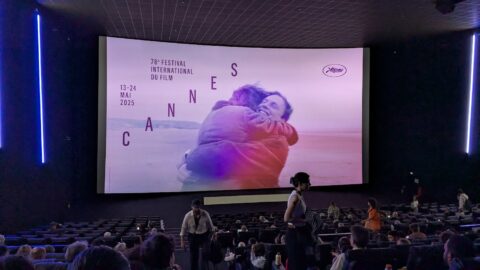With one of the most underwhelming lineups in recent memory, Cannes 2025 stood out less for its films and more for its unexpected and politically charged moments. From a palm tree falling on someone’s head to a Palme d’Or heavy with meaning, this edition proved that sometimes the real spectacle happens largely off-screen.
The 78th edition of the world’s biggest film festival will be remembered for many things: a palm tree that literally fell on someone’s head, Denzel Washington’s scuffle with an overzealous photographer on the red carpet, the city-wide blackout on closing day — later confirmed to be an act of sabotage — and also the seismic shock of Oliver Laxe’s explosive Sirât (all films 2025 unless otherwise noted), a cinematic thunderclap that disrupted Cannes out of its usual rhythms. But above all, Cannes 2025 will go down as a politically charged edition, one where the tensions of the outside world rushed in to fill the void left by a disappointing crop of films, bleeding into the conversations, the corridors and especially its final coronation.
It all began on day one. At the opening press conference, the international jury, led by French actress Juliette Binoche and featuring filmmakers like Carlos Reygadas and Hong Sangsoo, was confronted with uncomfortable questions about Gaza. Tensions peaked when a journalist asked Binoche why she didn’t sign the open letter “In Cannes, the Horror in Gaza Cannot Be Silenced,” released just before the festival and signed by nearly 400 film professionals, including Pedro Almodóvar, David Cronenberg and Virginie Efira. The letter called for an end to institutional silence around Israel’s offensive. Binoche, visibly uncomfortable, only said, “I cannot respond to that,” then cryptically added, “You will maybe understand it a little later.”
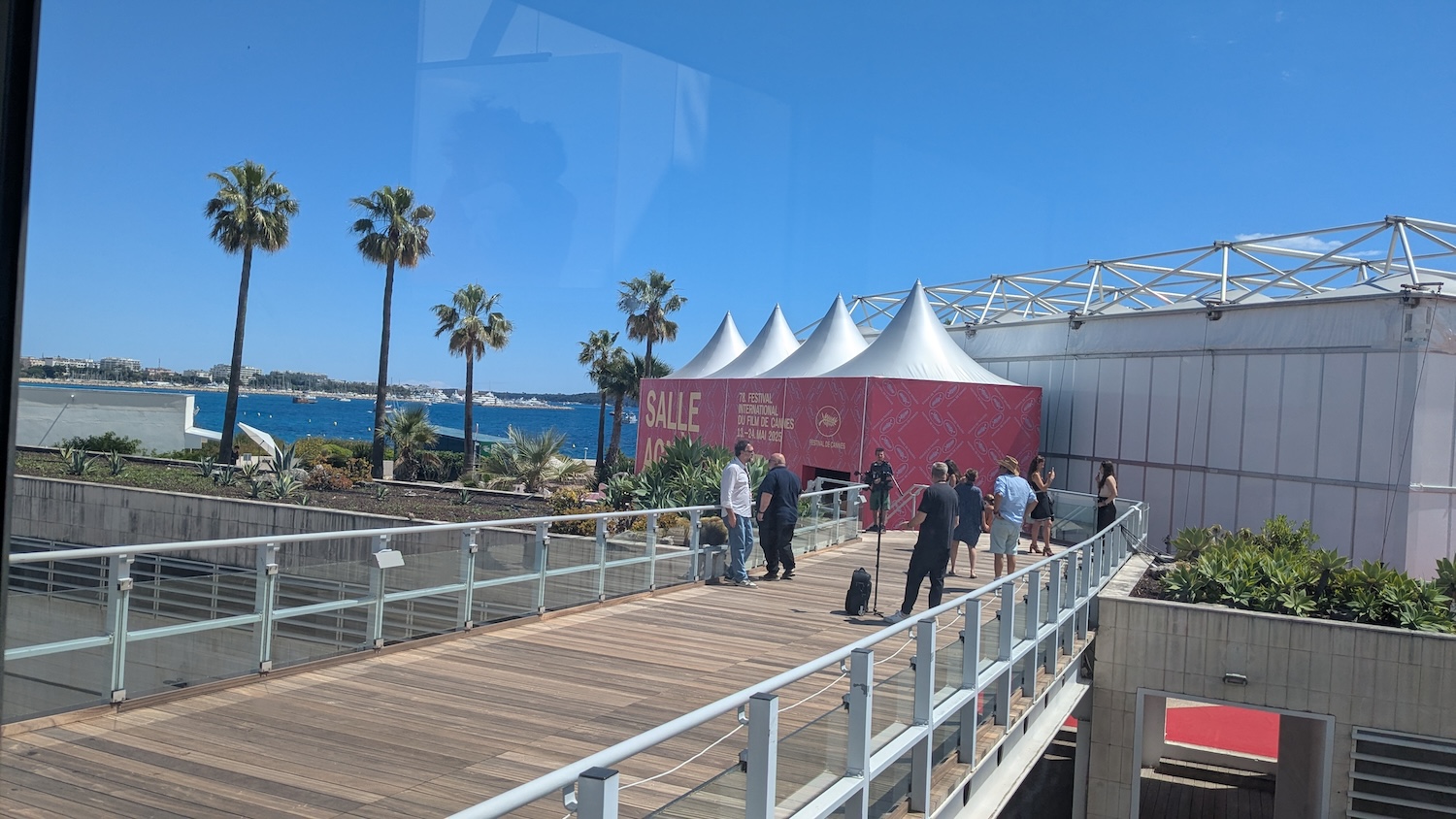
She later attempted to redeem herself by paying tribute to Fatma Hassona, the 25-year-old Palestinian photojournalist from Gaza and the subject of Sepideh Farsi’s documentary Put Your Soul on Your Hand and Walk, which had just been selected for the ACID section when Hassona was killed in an Israeli airstrike on April 16. The film’s screenings were met with immense curiosity, attracting huge crowds and generating heated debate in the festival’s early days. Another Palestinian story also surfaced in Un Certain Regard with Once Upon a Time in Gaza (Tarzan and Arab Nasser) about a small-time drug dealer and his protégé navigating life in war-torn Gaza as they try to survive by stuffing hash into falafel sandwiches. A film with undeniable earnestness, even if its didactic tone dulled its impact and left the viewer wanting for more.
The festival’s political temperature only rose from there. On day two, during a tribute to Robert De Niro, the actor used his speech to attack “America’s Philistine president,” urging the audience to protest, organise and “act now.” He ended with the French rallying cry “Liberté, Égalité, Fraternité,” which set the tone for a festival that wore its conscience on its sleeve, though only after carefully picking which battles were safe enough to be seen fighting. While the Russian delegation remained banned since 2022, with dissident Kirill Serebrennikov presenting his unanimously panned The Disappearance of Josef Mengele in Cannes Premiere, a last-minute Ukrainian program was swiftly added to the already crowded schedule. It included three films about the country, among them a biographical documentary simply titled Zelensky (Yves Jeuland, Lisa Vapné, Ariane Chemin).
At the same time, Nadav Lapid’s Yes, (pictured below) — an incendiary satire in which a failed musician is tasked with composing a new Israeli anthem — was conspicuously absent from the official selection. According to whispers in the industry corridors, Thierry Fremaux and his team loved the film, but it was considered too controversial, potentially provoking red carpet protests or diplomatic discomfort. It was eventually saved by the bell at the last minute and taken in by the Directors’ Fortnight, where it received a mix of boos and enthusiastic applause — a reaction the main competition seemed unwilling to risk.

Another thing Cannes 2025 will be remembered for is the overwhelming presence of Americans — not just in the program, but in the ever-chatty, hyperactive crowd attending the festival. Their unmistakable volume echoed through every queue, where loud hot takes about possible “Oscar contenders” spilled freely to anyone willing to listen. The Hollywood Reporter, never one to miss a buzz, devoted an entire printed page to an article titled: “Could one of this year’s Cannes titles be the next Anora (Sean Baker, 2024)?” A question that, in hindsight, felt more like wishful marketing than a serious prognostication.
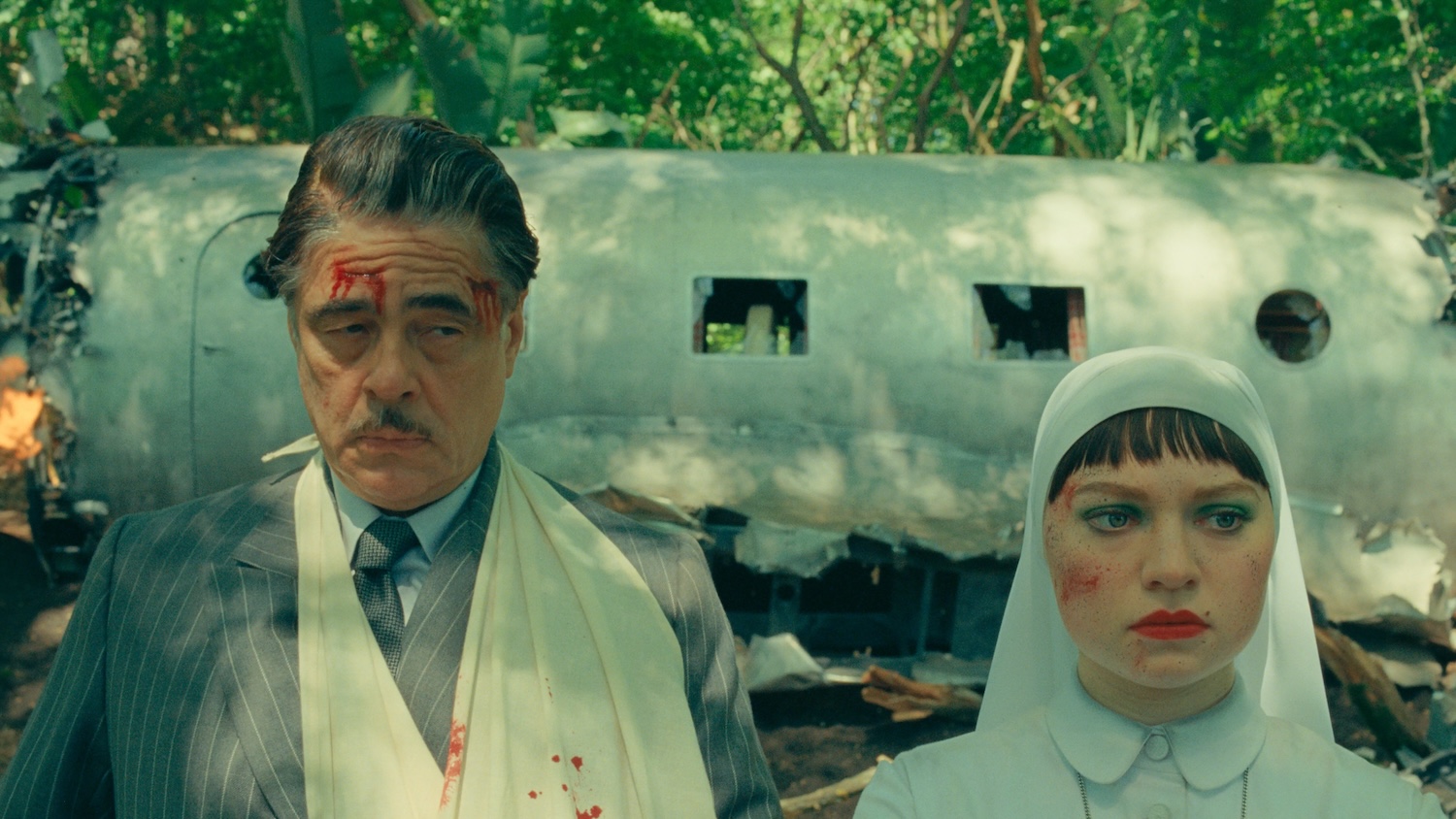
Don’t Believe the Hype
Which brings us to the films themselves. In one of the most underwhelming selections in recent memory, many films promised much on paper but collapsed spectacularly on screen, with mild disappointments including Ari Aster’s ambitious epic Eddington and Mascha Schilinski’s Sound of Falling (both already covered in our first round-up). This sense of underachievement seemed tied to the festival’s reluctance to take bold chances. Perhaps feeling the pressure to replicate last year’s hit-studded lineup, the festival leaned hard on familiar names at the expense of real discovery. The result was a program that played it safe, prioritising name recognition over exciting risks.
Richard Linklater’s Nouvelle Vague exemplified this trend well: his tribute to the making of Jean-Luc Godard’s Breathless (1960) was caught between its intentions of reverence and an inability to assert a voice beyond the pastiche. Despite its impressive visual flair and committed performances, the film seemed overly preoccupied with mimicking early Godard’s black-and-white aesthetic while bending historical fact to mythologise its subject as a precocious visionary author. Take, for example, the famous “jump cuts,” portrayed in the film as the product of a radical cinematic vision by Godard. These were, in fact, born from the mundane need to cut the film under 90 minutes to satisfy contractual obligations. In Linklater’s view, history is storytelling “for dramatic purposes.”
Then came Wes Anderson’s The Phoenician Scheme (above) — another pastel-colored rerun of his signature formula. This time came mercifully with fewer Hollywood stars crowding the frame with meaningless cameos, but the same stylised detachment remained. An overworked, sleep-deprived colleague summed it up with deadpan wit: “It could’ve been the perfect film for my well-earned nap…if only it hadn’t been so noisy.”
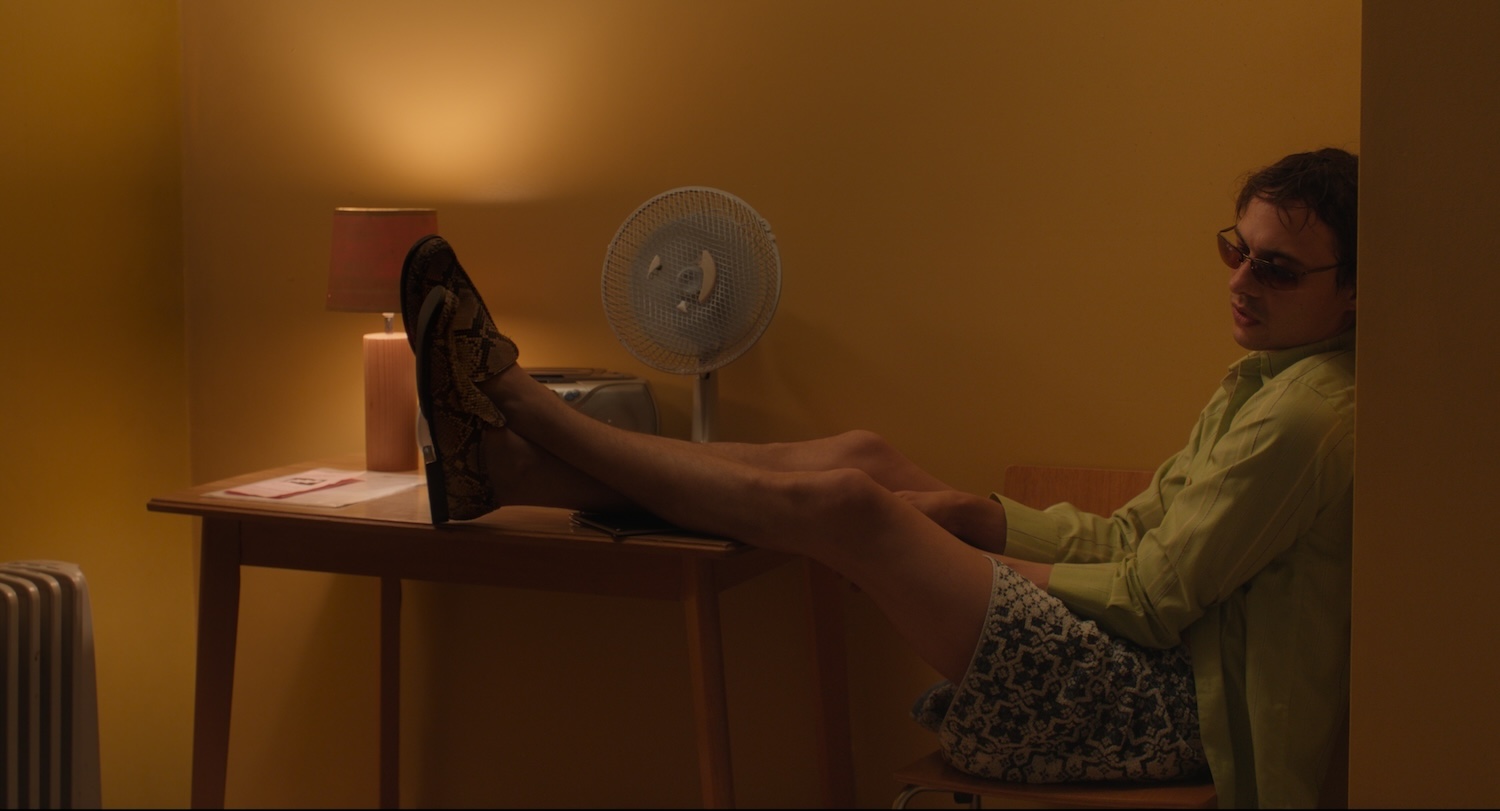
Actors Turned Directors
2025 also marked the year when actors-turned-directors took centre stage on the Croisette, though with decidedly mixed results. Kristen Stewart opened the floor with The Chronology of Water, an adaptation of Lidia Yuknavitch’s memoir, with Imogen Poots delivering a raw, emotionally exposed performance. Stewart’s debut, deeply stylised and elliptical, could easily have shared a double bill with Schilinski’s Sound of Falling: two fragmented portraits of womanhood, both so enamoured with their own aesthetics that they often drift into a poetic void.
Next came Scarlett Johansson’s Eleanor the Great, one of the most buzzed-about titles at the festival — at least until the lights went down. Its first screening triggered a minor scandal outside the venue: the room was so overcrowded that nearly 100 guests with tickets in hand were turned away.1 It brought to mind the chaos of two years ago when Pedro Almodóvar premiered his 30-minute gay romance Strange Way of Life (2023), leaving crowds stranded outside. It’s yet another sign of the festival’s recurring capacity issues, a logistical mess increasingly slipping out of control year after year.
But all that commotion was, in retrospect, the most exciting thing about Eleanor the Great. Johansson’s comedy about a 94-year-old woman who pretends to be a Holocaust survivor aspired to be edgy and irreverent. Instead, it delivered flat provocation and clumsy attempts at dark humour — met not with nervous laughter, but with a collective shrug. What might have been an offbeat satire settled into the rhythm of a sentimental TV movie, complete with a tidy moral. The premise had teeth, but the execution was all dentures.
Completing this unlikely trio, Harris Dickinson, best known for Babygirl (Halina Reijn, 2024) and Triangle of Sadness (Ruben Östlund, 2022), emerged with genuine promise. His directorial debut, Urchin (above), offered a tough yet tender portrait of a young homeless man dealing with addiction and post-prison life on the streets of London. The film blended social realism with moments of surreal beauty, illuminating the fragile interplay between despair and hope. Frank Dillane took home the Best Actor award in Un Certain Regard, though the decision sparked controversy when jury president Molly Manning Walker was accused of a conflict of interest, due to her close personal and professional ties to both Dickinson and Harry Lighton, whose film Pillion also won Best Screenplay, given by her jury.
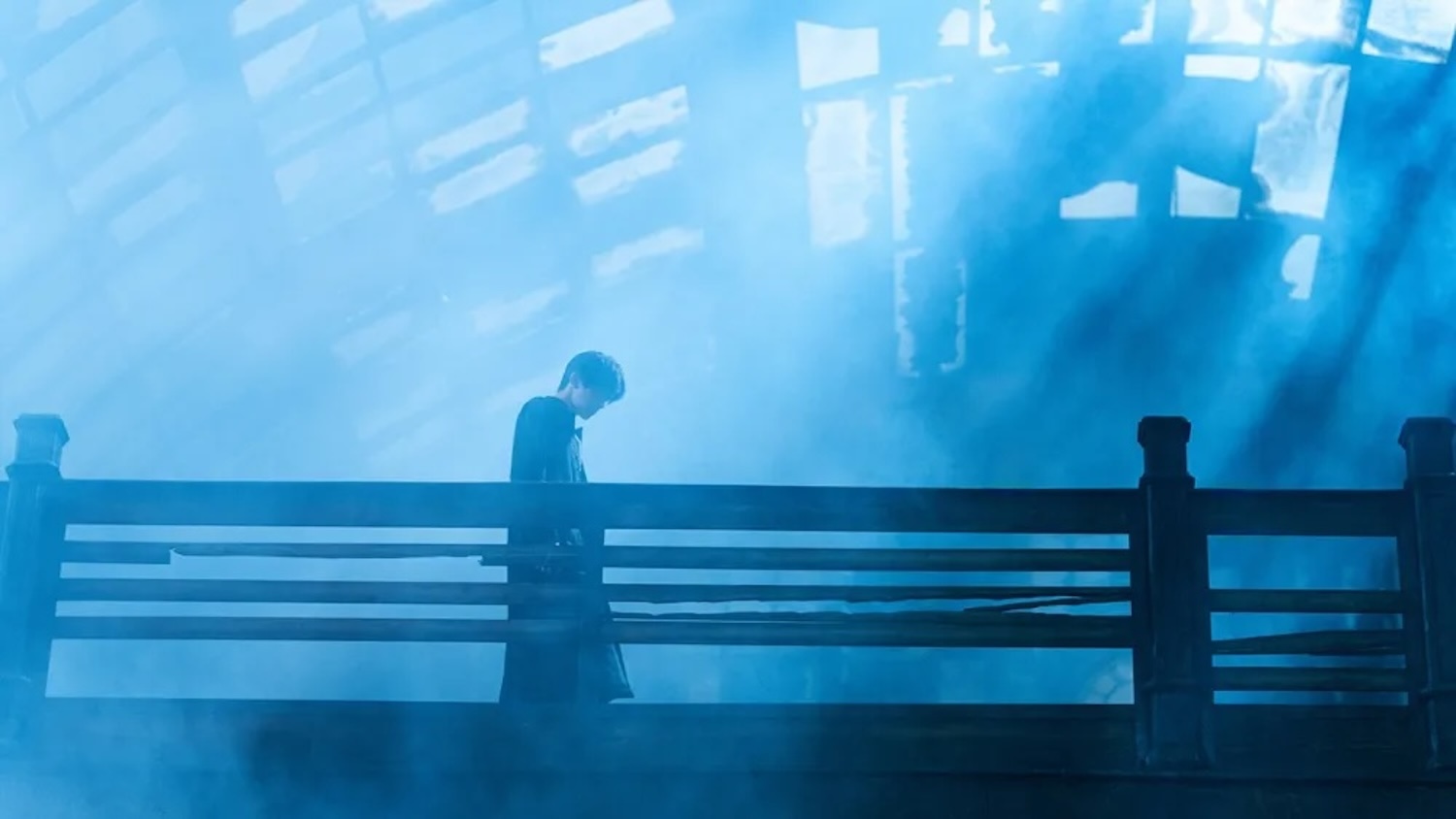
The Competition Winners
Returning to the main competition, Sirât was perhaps the only true masterpiece of the festival. This third feature by Galician filmmaker Oliver Laxe, who had already drawn attention with the haunting Fire Will Come (2019), sent tremors through the Croisette with its techno-apocalyptic portrait of a man stripped of everything. It was awarded the Jury Prize, Cannes’ equivalent of third place, in a tie with Mascha Schilinski’s Sound of Falling. Binoche’s jury clearly had a sense of where the strongest films were hiding, even if they handed out the prizes in the wrong order.
Also drawing attention was 35-year-old Chinese director Bi Gan, whose Resurrection (pictured above) landed in competition at the last minute, delayed by complications with Chinese censorship. A cult figure since his 2018 Long Day’s Journey Into Night stunned viewers with its hour-long 3D single take, Bi Gan returned with a work of staggering visual ambition. The first twenty minutes alone feel like an instant classic, unfolding as a silent film that conjures the ghostly shadows of German expressionism, particularly The Cabinet of Dr. Caligari (Robert Wiene, 1920). Its beauty is unmistakable, though it requires a certain commitment from the viewer; one who is willing to surrender to its drifting logic, far removed from conventional storytelling. IndieWire framed it as a poignant question: is Resurrection “imaginative boundary-defying cinema or an endurance test?” The answer is probably both, and unapologetically so. The jury recognised this by awarding the film a special prize, created specifically at Binoche’s request.
In its final stretch, the main program brought Sentimental Value, the notable fourth film by Norwegian Joachim Trier, and a predictable audience favourite. The story explores familial estrangement, as sisters Nora (Renate Reinsve) and Agnes (Inga Ibsdotter Lilleaas) confront their past while their father Gustav (Stellan Skarsgård), a renowned director who hasn’t made a film in 15 years, tries to reconnect through a deeply personal project. He enlists Hollywood actress Rachel Kemp (Elle Fanning) to portray their family’s complex history. It’s a tighter, more mature work than The Worst Person in the World (2021), but given the bold voices on the jury like Reygadas, Payal or Hong Sangsoo, awarding second prize to something so neat and award-baity as this felt like a compromise, even if a classy one.
But the same awards night also celebrated a much bolder choice: Brazilian filmmaker Kléber Mendonça Filho clearly emerged as the evening’s biggest winner. A former film critic turned filmmaker, Mendonça Filho’s complex political thriller The Secret Agent swept four awards, including Best Director and Best Actor. Set in Recife in 1977, at the height of Brazil’s military dictatorship, the film follows Marcelo (Wagner Moura), a professor forced into internal exile. Fleeing the capital Brasília, he adopts a new identity in his northeastern hometown while planning an escape abroad with his son. At the post-awards press conference, when asked why the jury broke the usual rule of not giving multiple prizes to one single film, Sangsoo openly let slip that they all loved the film and were convinced they wanted to award it with one of the major prizes. An acclaim that felt more than justified.
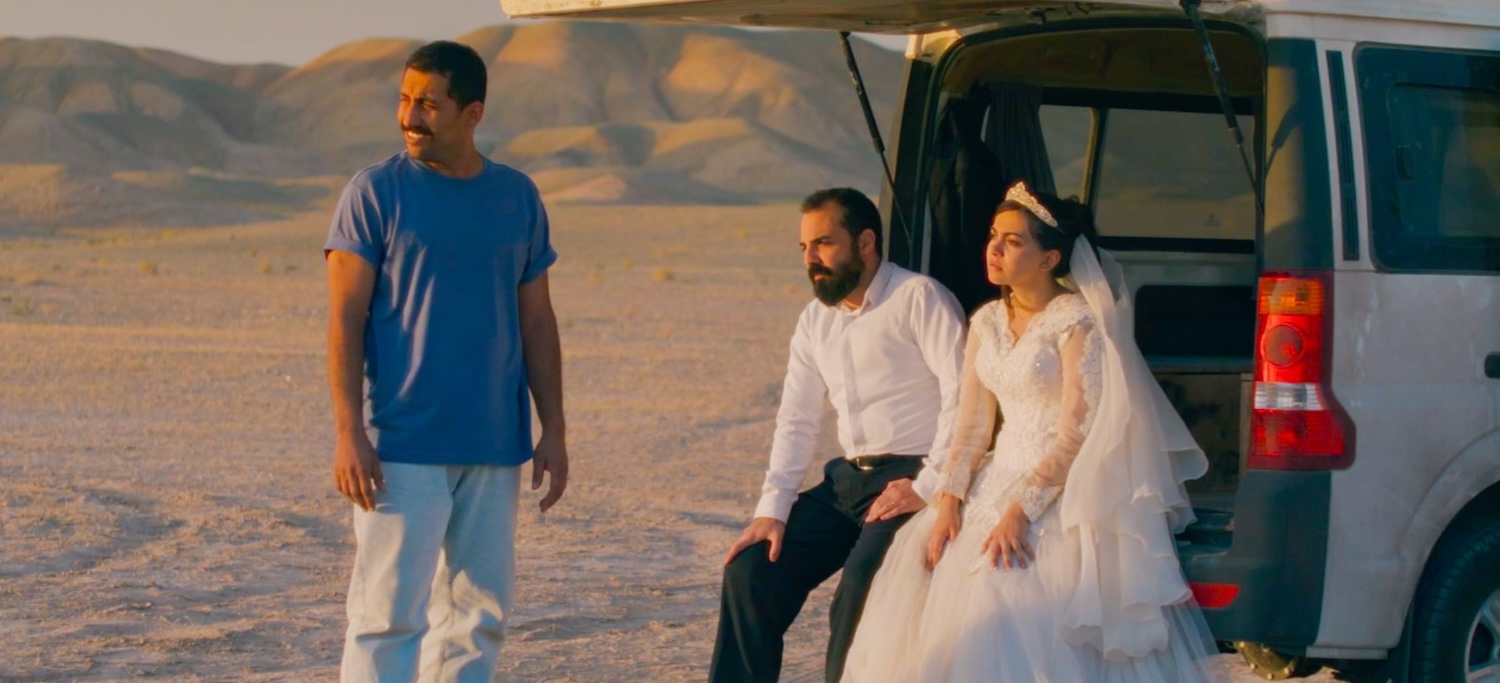
An Unsurprising Victor
And finally, the coronation: Jafar Panahi, the Iranian filmmaker recently released from prison, was awarded the highly coveted Palme d’Or, completing a rare feat by winning the top prizes at all three major festivals: Venice (The Circle, 2000), Berlin (Taxi, 2015), and now Cannes (Un Simple Accident, above).2The first director to achieve this feat since Robert Altman in 1993, joining Michelangelo Antonioni and Henri-Georges Clouzot. His win reignited the ever-relevant debate over the role of political prizes in festivals. When Binoche revealed the Palme, the internet resurfaced with 2010 clips of her crying at a Cannes press conference after learning that Panahi, then imprisoned in Iran, had gone on a hunger strike. Just days later, when she won Best Actress for Abbas Kiarostami’s Certified Copy (2010), she held up a placard with his name and made an emotional public plea for Panahi’s release, declaring that his only crime was “being an artist and being independent.” This moment, combined with mounting international pressure, was widely seen as pivotal in securing Panahi’s release on bail just three days later. The Irish Times even ran the headline: “Binoche frees Iranian filmmaker.”
Fifteen years later, that moment echoed powerfully during Saturday night’s ceremony. At the post-awards press conference, the moderator referred to the prize given to Panahi, perhaps unintentionally, as a “gesture” to which Juliette Binoche quickly agreed, acknowledging its symbolic weight. She recalled the impact of her 2010 plea and emphasised how “important” she felt the jury should award Un Simple Accident the top prize. Possibly as an act of historical reparation or even a preventive measure, considering the potential repercussions the film might have for the director upon returning to Iran. In a work that so directly confronts the Iranian regime, could the prize also serve to mitigate those consequences?
Un Simple Accident arrived in Cannes already shrouded in the inevitable aura of a political event. Made in secret, the film follows the journey of a mechanic who, upon recognising the voice of his former torturer, decides to kidnap him and take justice into his own hands. But at the moment of executing his plan — to bury the man alive — a doubt emerges: is this really the man responsible for his suffering?
Panahi turns this brutal premise into a comedy of errors, marked by a melancholic tone and macabre humour. It’s a restless and provocative film, occasionally hindered by a certain artificiality, a result of its almost theatrical structure, which exposes some of its weaknesses. Here, Panahi constructs a theatre of the absurd to explore the moral ambiguities of revenge. If a victim reproduces the violence they endured, what separates them from their oppressor?
The conclusion Panahi chooses is somewhat predictable, as it assumes a morally superior stance toward those who became corrupted by power, and falters by reducing this dilemma to a simplistic gesture. Still, the symbolic power of the allegory remains. What begins as the personal drama of an ordinary man seeking justice slowly transforms into the metaphor of an entire country.
If Cannes 2025 is remembered above all for its political resonance, then awarding Un Simple Accident stands as a powerful testament to that legacy. By honouring one of world cinema’s greatest voices, the festival does more than celebrate artistry; it also discreetly embraces its political role. This is nothing new in the festival circuit, yet it remains a controversial and potent gesture. One that, with any luck, might still have consequences in the real world.
Wellington Almeida is a programmer, a film writer and a devoted cat lover.
